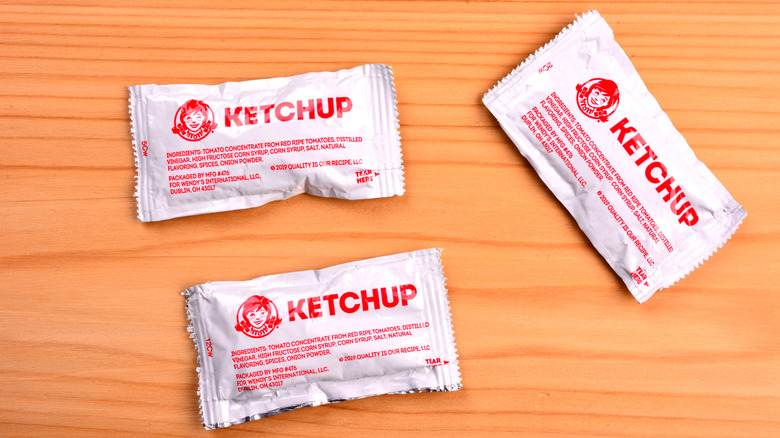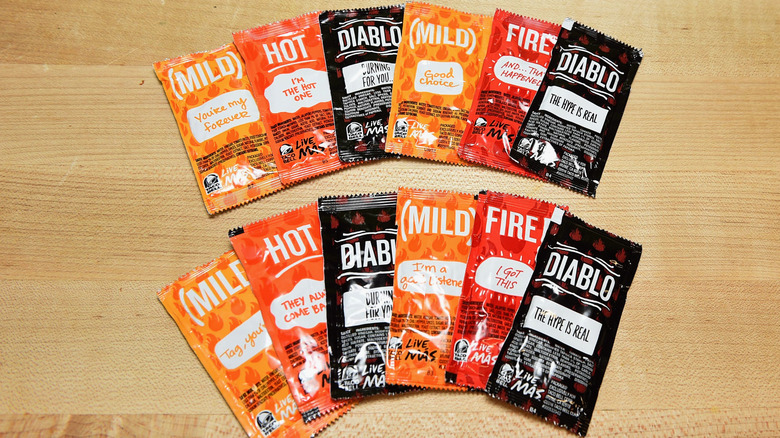Should You Store Fast Food Sauce Packets In The Fridge?
How many ketchup packets does a person really need? For a lot of us, it's as many as we can get for free. Some fast food fanatics even have a whole drawer dedicated to their spare ranch, mustard, and McDonald's elusive Szechuan sauces. If it's all free, why not? But, should you actually be storing those fast food packets in the fridge?
Since commercial condiment packets come sealed and full of preservatives, you should be safe storing leftover sauce packets outside of the fridge. Still, it's best to keep these packets in a cool, dry place to prolong their shelf life. Whether that's a drawer in your kitchen or the fridge is up to you. Although, since the fridge provides a consistently cool environment, it is still probably the best choice.
Keep in mind that these sauces don't last indefinitely, so you should write the date on the package if you'll be holding onto them. While it's difficult to say exactly how long each one of those condiments will last, we do know that packets of Heinz ketchup can last up to nearly nine months. Even this number is a bit elusive, as you can never be sure how long those packets were sitting in the restaurant before reaching your bag. Since these sauces are meant to be used shortly after purchase, it's best to avoid keeping them on your person for more than three months to ensure an optimal taste and texture, as the packets lose flavor over time.
It's not an exact science
Since most of these sauces do not list nutritional information or best-by dates, it's difficult to put a surefire number on just how long fast food condiments will last. (If you're wondering where that information is, it's usually on the box that all of those packets were initially shipped in.) If the packet is damaged, has mold on it, or has any other funky tastes or textures, it should hit always the bin.
For the best peace of mind, keep those packets in the fridge. Some condiments last almost indefinitely, such as salt, pepper, sugar, and honey, and it won't make much of a difference. But, for others that contain ingredients prone to spoiling, such as mayo, butter, or other dairy products, or when the packaging is paper instead of plastic, it could mean being able to actually enjoy all those packets you worked so hard to hoard. (That includes your packets of soy sauce, too.) First, always ask yourself: Are these sauces worthy of precious kitchen space?

